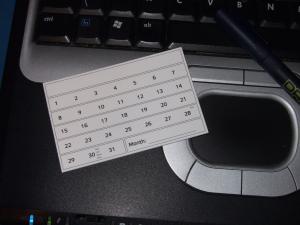Finance Definitions: Settlement Date vs. Trade Date
As we continue our financial definitions series, we come to two related terms: the trade date and the settlement date. These two dates define when you purchase a stock and when you take ownership. Confusing? Well, let's take a closer look.
Trade Date
First, let's look at the trade date. When you buy a stock, the day of the purchase or sales order is considered the trade date (also known as the day that you sat down at the computer or with your advisor to place the order). This is an important date to consider because sometimes the settlement date is contingent upon the trade date. Let's look at a little more about the settlement date.
Settlement Date
The settlement date occurs when the shares are actually transferred on the market. Oftentimes, this date is the same as the trade date because buyers and sellers are obligated to make the transfer within an acceptable time period. And who wouldn't rather complete the trade on the same date?
Well, sometimes there are reasons for making the settlement date different from the trade date. For example, most banks and investment companies follow some standard conventions. In general, CDs are settled on the same day as the trade date, but mutual funds are settled the day after the trade date. Two days after the trade date, US treasuries and foreign exchanges occur, but stocks and municipal bonds generally are settled three days after the trade date.
When Do I Make Money?
The trade date is the point in which the transaction amount is valid, but you won't own the shares until the settlement date. Therefore, you won't actually make money until the settlement date.
Let's take a look at an example. Say you bought twenty shares of ABC Company at $30 per share on the trade date. You must wait three business days for the trade to settle. In that time period, the stock jumps to $35. You are locked into the agreement to buy at $30, so essentially, once the trade is settled, you have made $5 per share. But you won't own the shares until the settlement date, which essentially makes the settlement date the day you actually take ownership and can rake in the cash.
Fails
Sometimes, the transaction can fail. Despite the best intentions of the buyer and seller, if the cash or security is not available, the transaction will not go through. In the case of the buyer failing to secure the appropriate amount of cash for the purchase, a "long fail" can occur; the transaction is cancelled due to lack of funds. If the seller, on the other hand, fails to provide the shares on the settlement date, a "short fail" occurs.
Basically, the settlement date and trade date are some very important terms to remember as you purchase investments. Knowing when you have ownership of the actual security (the settlement date) is integral to keeping track of your portfolio.
- Login to post comments
-







MoneyCone wrote:
Mon, 03/12/2012 - 17:05 Comment #: 1Subtle difference but can be quite puzzling to the newbie investor. Well explained (as always!) Christa!
Christa Palm wrote:
Tue, 03/13/2012 - 18:01 Comment #: 2Thanks, MoneyCone!